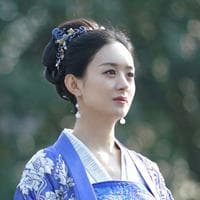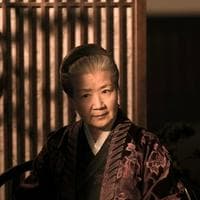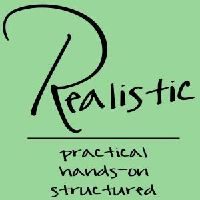Gu Tingye MBTI Personality Type
Personality
What personality type is Gu Tingye? Gu Tingye is an ESTP personality type in MBTI, 8w7 - sx/so - in Enneagram, SCUEN in Big 5, SEE in Socionics.
In the TV serialization of The Story of Minglan, Gu Tingye is a straightforward portrayal of an ESTP (Se-Ti). From his later military accomplishments to his actionable here-and-now style of thinking, his grounded realness very much marks him as a Se dominant. Tingye is rarely afraid to act boldly and with instantaneous response, in situations serious or mundane, and displays very little patience when faced with restrictions or manners that keep him from acting freely. He is a man of constant action. Unlike some of the other intuitives in the series, Tingye does not bother as much with irrelevant hypothetical discussion, instead preferring a straight-to-the-point way of dealing with things. Rather, it is his wife Minglan (a likely INFJ) who helps him begin to see the worth of subtlety and begin to develop his sore spot in terms of the intangible (Ni). His Ti is pronounced in the series when it’s shown over time that he can become good at anything he finds interesting or worth his effort; he rapidly established himself as a military commander and later even strengthened his abilities as an official after inheriting the marquis title. Even earlier in the series when his character is not as developed, Tingye is frequently portrayed as following an internal, consistently logical, code of honor. Tingye’s ability to discern injustice by comparing it against internal data is shown in incidents as early as aiding a young Minglan to find a doctor when her mother was in labor; but it is expounded even more prominently in the matter with Manniang. When Tingye finds out that Manniang is unscrupulous and a liar, and even more so one that snuck past his radar (Ni blind spot), he experiences turmoil from being forced to match such a discrepancy against his internal logical model and finding that his judgement of her as virtuous and harmless was in fact wrong. There are more examples of this throughout the show, such as his initial refusal to accept the death of his son. More externally, we can see Tingye criticizing others for hypocrisy and logical inconsistency, like his stepmother. When Tingye speaks, it is more hands-on and rarely theoretical, and by and large he is a man of actions over words - this is shown in his disdain for Qi Heng’s perceived lollygagging in the matter with Minglan. He is practical and intelligent, later displaying command over military strategy and court politics that surprises even close friends like Changbai and knocks their enemies off his feet. Tingye’s tertiary Fe and inferior Ni are best explored through his relationship with other characters, particularly Minglan, who should be Ni-Fe. Tingye values camaraderie and loyalty to a group, and in his growth as a person one can see a clear uptrend in Fe development. He begins to recognize how important it is to make it clear that those close to him matter dearly to him, especially to Minglan and their family. In terms of Ni, his betrayal by Manniang is probably the most standout example of Ni inferior, with almost everyone around him being able to see the implications in her behavior that he cannot (Fe tertiary); Minglan (Ni dom) particularly, and this blind spot of his is commented on throughout the series. In his relationship with Minglan, Tingye is able to develop his Ni and Fe by seeking to understand her application of these functions to situations - he likewise does the same with his own Se-Ti for her. “One attacks and one defends” - they cover each other’s blind spots, and the writers were clear in making us know it. Finally building understanding of unstated meaning and the potential latent in himself and the others around him, loyal to his family and friends, by the end of the show Gu Tingye is a very self-realized example of a healthy ESTP in fiction.
Biography
Related Personalities

Sheng Minglan

Qi Heng

Sheng Ru Lan

Sheng Molan

Wang Ruo Fu

The younger Lady Qin

Old Madam Sheng

Lin Qinshuang
















